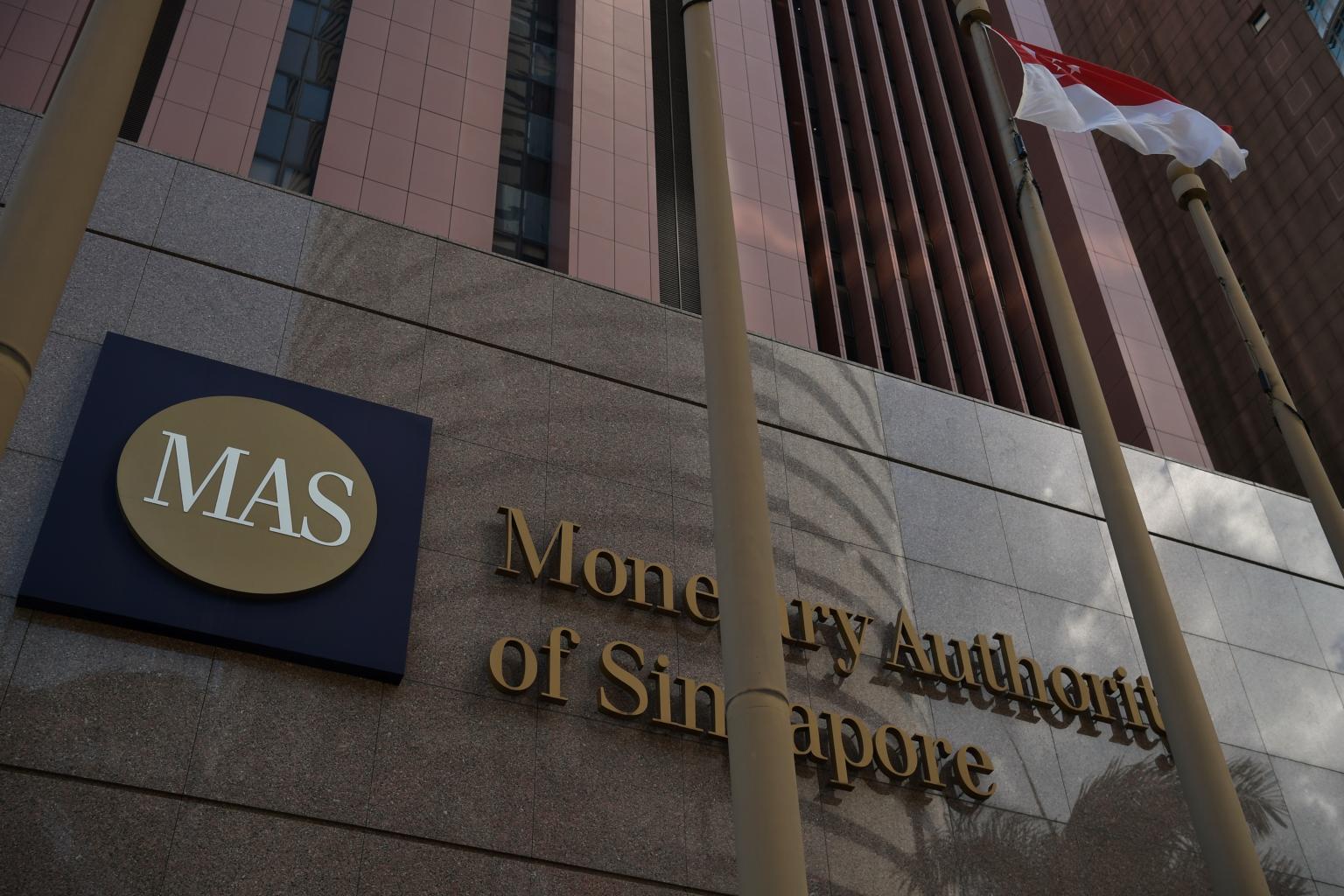Banks will have access to more Singdollar funds with new MAS facility
Sign up now: Get ST's newsletters delivered to your inbox

The Monetary Authority of Singapore says its latest facility will offer Singdollar funds in one-month and three-month tenors.
PHOTO: ST FILE
SINGAPORE - Banks and finance companies in Singapore will have access to more funds if they run into liquidity problems because of the Covid-19 pandemic.
The Monetary Authority of Singapore (MAS) is rolling out a Singdollar term facility to pre-empt and contain liquidity strains before they become serious challenges.
"While banks and finance companies in Singapore maintain healthy liquidity buffers, MAS is introducing this facility pre-emptively to provide greater certainty of access to central bank liquidity," a central bank statement said on Thursday (Sept 3).
The measure, which will be launched by end-September, comes on top of two other liquidity facilities that the central bank has rolled out since the start of the Covid-19 crisis. The two are the MAS USD Facility and the MAS SGD facility for Enterprise Singapore (ESG) loans.
Ms Jacqueline Loh, the central bank's deputy managing director for markets and development, said that the measures will strengthen the banking sector in Singapore.
"(They) enable our banks to continue to support the needs of businesses and individuals here, and in the region, through the crisis," she said.
Banks and finance companies are bracing for more defaults as firms struggle to stay afloat amid the pandemic and the prospect of relief measures being wound down by the end of this year.
Local banks - DBS Bank, OCBC Bank and United Overseas Bank - have all shored up their balance sheets even as they reported a decline in net profits in the second quarter of this year.
The MAS said that its latest facility will offer Singdollar funds in one-month and three-month tenors, and a range of collateral, comprising cash and marketable securities in Singdollar and major currencies, will be accepted. The collateral accepted for its US dollar facility will also be expanded to include the above.
"Pricing (for the latest facility) will be set above prevailing market rates, in line with the facility's objective to serve as a liquidity backstop," MAS said.
Banks incorporated in Singapore and categorised as "domestic systematically important" or D-SIBs will also be allowed to pledge "eligible residential property loans as collateral" at the MAS SGD Term Facility.
"The acceptance of residential property loans as collateral is only available to D-SIBs and is in line with the practices of major central banks," the MAS said.
"The expansion of acceptable collateral will help these banks conserve their more liquid instruments and strengthen the effectiveness of the MAS SGD Term Facility in providing liquidity support," it added.
CIMB Private Banking economist Song Seng Wun described the MAS move as a guard and a contingency plan against deeper economic cuts if the current "recessionary tensions do not ease".
More retrenchments and business closures will affect repayment schedules for both retail and corporate customers, Mr Song said.
"At this point, we really don't know how the pandemic will pan out," he added.
Banks, including DBS and Standard Chartered, welcomed the central bank's move.
DBS managing director and head of treasury and liquidity management Andy So said: " While Singapore banks have strong liquidity positions, these measures will provide greater certainty of access to central bank liquidity in times of liquidity stress."
Standard Chartered Bank global head of treasury markets Daniel Koh said the new facility will help maintain a well-functioning financial market in Singapore.
In July, the MAS said that it will be extending a US$60 billion (S$82 billion) swap facility with the United States Federal Reserve to facilitate lending to businesses in Singapore after setting up the facility in March.
It established the MAS USD Facility on March 26 to lend US dollars to banks in Singapore. Both the swap line and MAS USD Facility have been extended to end-March next year.
In April, the central bank said that it will offer near-zero interest rate loans to eligible banks - just 0.1 per cent per annum for a two-year tenor - as part of an effort to support lending to small and medium-sized enterprises under ESG schemes.


